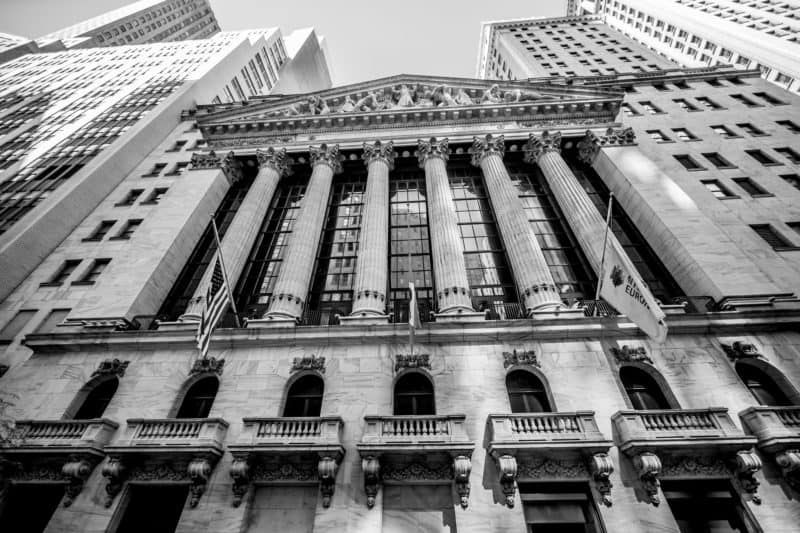In the aftermath of the financial collapse, a lot was written about the schadenfreude of watching the masters of the universe take a tumble from their vaunted positions atop Wall Street. But a couple of years later, not only have the hedge fund managers and investment bankers largely reclaimed their bonuses and prestige, but they’ve somehow managed to do schadenfreude one better; instead of deriving mere pleasure at the misfortune of others, they’ve figured out how to make money off it.
Writes Azaz Ahmed in the New York Times, “so-called black swan funds—named for rare and unexpected events—offer a way to profit in the event of a market collapse.”
They may be called black swans, but they operate more like vultures, hungrily eyeing the faltering economy and waiting to swoop in to tear what’s left to shreds. Along with tail risk funds, which hedge against predictable but improbable events, black swan funds offer a way for investors to insure themselves against losses—and make a bundle selling assets bought on the cheap—in the case of rare or unexpected catastrophes, from a default in Greece to an economic slowdown in China.
These kinds of “Armageddon funds” have been in and out of the news since Nassim Taleb’s book The Black Swan topped the bestseller lists in 2007, with most of the conversation proceeding along the lines of “will this kind of investment actually make me a boatload of money or is Wall Street getting punked?”
In the eyes of investors, hedging is simply a strategy for dealing with risk in an uncertain world, and doomsday investing is no different. Bankers know that the system is inherently unstable and that crashes are inevitable. While they don’t want to see global markets collapse, they figure they might as well make money if they do. But the point isn’t so much that people who invest in tail risk hedging are actively rooting for a crisis as that they have no real incentive to avoid one. Instead of trying to make markets more predictable and stable, or prevent the risk of disaster occurring, “apocalypse investors” just try to pick the right crisis to put their money on.
The question we need to be asking is whether we’re really okay with a system that deals with the risk of catastrophe by letting rich investors bet their way out of the consequences while everyone else gets screwed (again).
Of course, investors have long speculated on things like commodity prices; should we really be surprised that they’re now betting on financial crisis? Perhaps not, but still, if there’s one thing the last financial crisis should have taught us, it’s that inventing new, complicated financial tools that distort risk and make the market less transparent is a terrible idea; MarketWatch likens the selling of black swan funds to “the town pyromaniac going door to door selling fire insurance.”
Tail risk and black swan funds threaten to deepen the disconnect between the consequences of investment decisions for those doing the investing and those suffered by the rest of the world: although wealthy investors occasionally lose staggering sums of money, they’re already far better able to absorb the impact of crisis than those without a cushion. Tail risk and black swan funds just seek to pad that cushion a bit more, offering the wealthy a soft landing when the rest of us hit rock bottom. But then, what should we really expect from a system where a trader can lose a billion dollars and suffer essentially no consequences?
You don’t have to be a Marxist to think that strategizing how to benefit from catastrophe sounds like a callous profiteering scheme, or indeed, to realize that the financial system itself is engineered for the gain of private individuals at the expense of public wellbeing. James Montier of the investment management firm GMO writes that “all too often those seeking tail risk protection appear to be motivated by the fear of missing out (not fear at all, but greed).” Economist Tyler Cowen notes that “for the time being, we need to accept the possibility that the financial sector has learned how to game the American (and UK-based) system of state capitalism.”
And “game” is the right word. To many traders, investing is just an elaborate set of calculations undertaken with the sole purpose of coming out on top of the earnings pile rather than an actual process for making use of capital with real-world consequences.
The question we need to be asking is whether we’re really okay with a system that deals with the risk of catastrophe by letting rich investors bet their way out of the consequences while everyone else gets screwed (again). The boom in Armageddon funds is simply more evidence—as if we needed it—that the rich live in a different world than the rest of us, and they have little incentive to invest in our shared future. They herald an every-man-for-himself ethos in which the rest of the world can go to hell in a handbasket as long as one’s personal assets are safe; the same kind of ethos that prompts executives to buy $230,000 security dogs or hire private firefighters rather than adequately funding public services.
What we need isn’t more ways for reckless investors to protect themselves from the collapse of the system they’ve pushed to the brink; it’s structural reforms that reduce risk for everyone in the long run as well as the short term.
